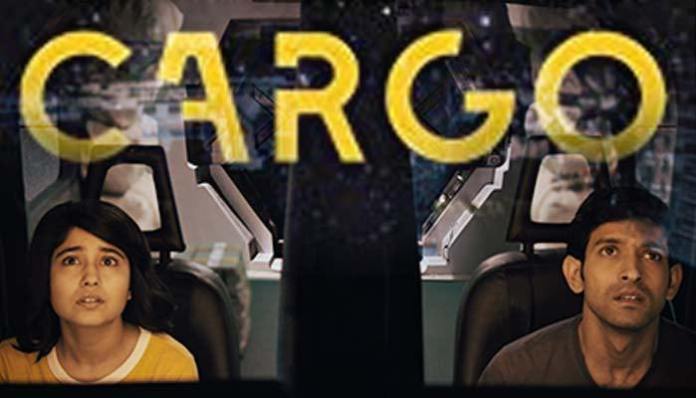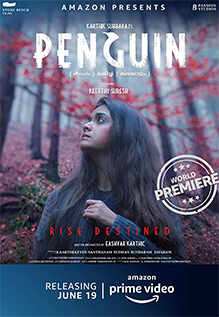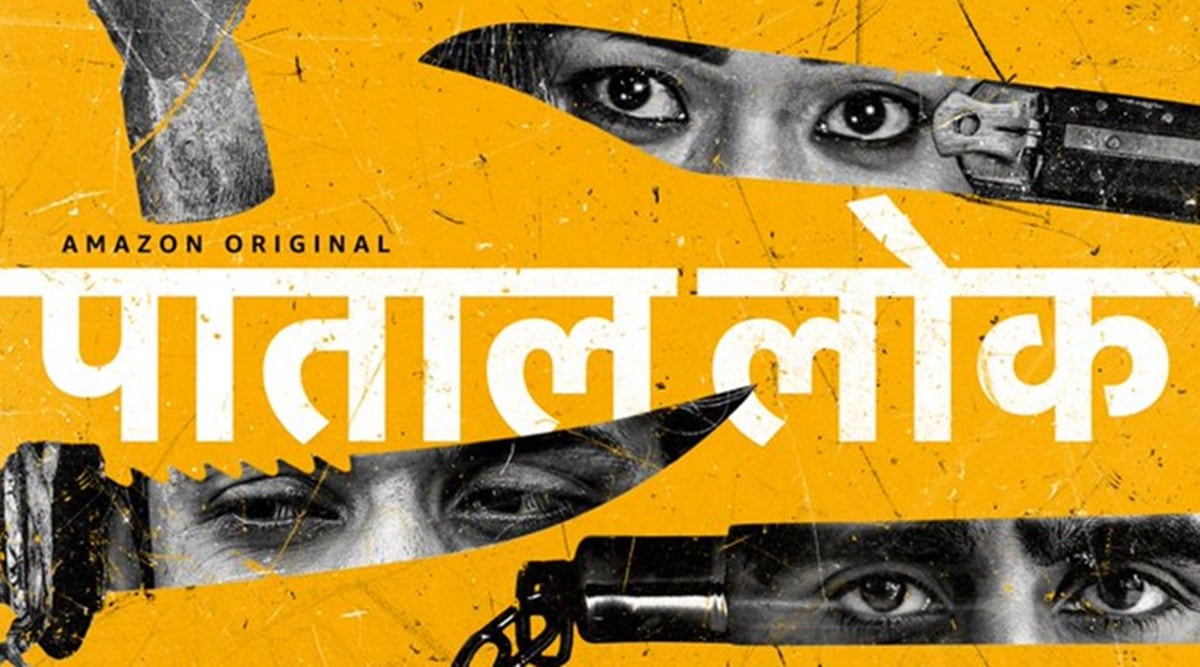One of life’s most fascinating and curious facets has been life after death. There have been various studies and research on what really happens after death? Is there an afterworld where humans are re-wired and sent for rebirth? Is there a mythical ‘Yamalok’ where all this happens? Writer-director Arati Kadav’s Netflix release, ‘Cargo’, takes this promising premise, gives it Sci-Fi undertones and yet, gives us an emotional tale, told through the eyes of two rakshasas (demons), Prahastha (Vikrant Massey) and Yuvishka (Shweta Tripathi).
Set in the year 2032, Cargo shows
an imaginary world where Manushya (humans) and Rakshasa (Demons) sign
a ‘peace pact’. The Rakshasa’s establish a Post Death Transition System
(PDTS), through a network of spacecrafts called ‘Pushpaks’, orbiting around
the earth and helping the dead transition to their afterlife. Calling themselves
the modern-day descendent of Yamraj, the god of death, Pushpaks have ‘agents’
who ‘transition’ manushya after death to their next lives. Commanding one
such Pushpak is Prahastha, who is assigned an assistant, Yuvishka, to
take on their mundane tasks of handling the dead & the deceased.

I couldn’t help but compare the
lives of Prahastha and Yuvishka to that of doctors we see around us. Usually, doctors
tend to become unfazed, unmoved and unaffected by death and pain, since this
becomes a part of their lives. The negativity of suffering and death does not
emotionally move them, as easily as it affects a commoner. Prahastha, having
manned his Pushpak for ages, is one such unremorseful ‘doctor’, who
heals, rehabilitates and transitions the dead to their next lives. In sharp contrast,
Yuvishka, like a medical intern, finds it difficult to handle her emotions and
inner turmoil. Her compassionate heart aches for the deceased and struggles to
remain objective, unlike her boss. How does she hold herself up for the
profession she has chosen? Would the arrival of a companion after ages make
Prahastha melt his stone-cold heart? Cargo is all about that.
Minutes into the viewing, I could
also see similarities with the 2016-Hollywood Sci-Fi drama, ‘Passengers’.
Much like Chris Pratt and Jennifer Lawrence, there are only two characters
stuck in the outer-space in Cargo. However, there isn’t much of a romantic
angle here – the leads remain largely platonic. Cargo is a movie about
emotions, characters and in a way, trying to unravel the baffling mystery of
life after death. Hence, we do not get to see hi-fi gadgets and equipment. In
fact, owing to the small budget probably, the set design and scenes in the
spaceship are quite primitive and look underwhelming. Speaking of the
spaceship, it’s cleverly been named ‘Pushpak’ after the mythical spacecraft
owned by another Rakshas, Ravana, in the mythological tale of Ramayana.
Arati Kadav also takes clever (and fascinating) writing tropes in giving Rakshas’s
distinct traits –they have various powers like the X-Men, their news is from
the Paatal Lok and a singing sensation is named Surpanakha, after
another mythological demoness. All this add to the quirk element of this make-believe
world.
Having said that, Cargo isn’t a Sci-Fi
extravagance. It is about the battle of emotions of its leads. On one hand, it
is about Prahastha’s realisation that life is beyond his mundane work. On the
other, it is about Yuvishka’s realisation that death is not the end of a person’s
story, it continues, probably in another birth. The essence of the movie is
beautifully explained by their handler from the base station, Nitigya (Nandu
Madhav) in a scene. When Yuvishka asks him what his superpower is, he says that
he can disappear upto 86%. When she questions its purpose if he cannot disappear
completely, he replies, “Life mein kuch be completely disappear nahi hota”.
This kind of sums up what Prahastha and Yuvishka learn towards the end of the movie
– death is an aberration and not an end. Lives do not disappear completely (at
least that’s what the movie’s writers seem to have deciphered).
Sci-Fi genre has largely been
dominated by big budget extravagant films, even in the Indian context. With
mammoth budgets, these films usually lean on cutting-edge technology,
awe-inviting action and stunning visuals. Even Indian Sci-FI drama, from the awfully
painful Love Story 2050 (2008) to the recent Telugu-Sci Fi, Antariksham
9000 KMPH (2018), concentrate on science and technology-driven dramas. But
Cargo comes as a refreshing change and deserves an applause for its quirks and
innovation. Apart from writer-director, Arati Kadav, a deserving mention of the
great camerawork by Kaushal Shah and sharp editing by Paramita Ghosh. I wish
the set designs were better and not as cardboard-like as they appear. I suspect
the tight budget to be the reason behind it. Also, the narrative seems to lose
a bit of a steam in the second half.
Like Passenger (2016),
Cargo relies majorly on two actors – its leads. Vikrant Massey is terrific as
the loner Prahastha, who experiences a change of heart once he experiences
companionship. Playing his junior and new-found companion, Shweta Tripathi is
nicely cast as the young, ambitious and compassionate new ‘agent’. Though their
relationship remains unsaid and platonic, they share a warm chemistry. Nandu
Madhav, playing their handler from the base station is nicely cast and makes an
impact despite appearing only through a 14-inch monitor throughout the film.
After watching Malayalam genius
at display in ‘C U Soon’ (2020) last week, I wondered if the Hindi film
industry is headed anywhere close to similar innovation and story-telling.
Cargo may not be a flawless attempt, but is certainly a laudable step towards
interesting and innovative story-telling in Hindi cinema, which we do not see too
often.
My Rating – 3.5/5




